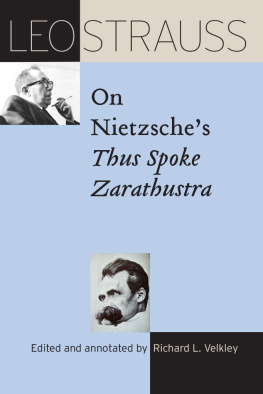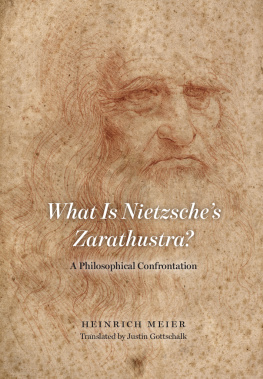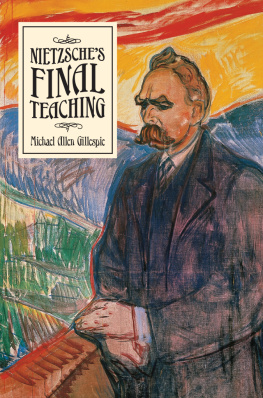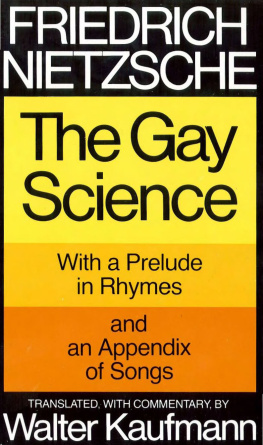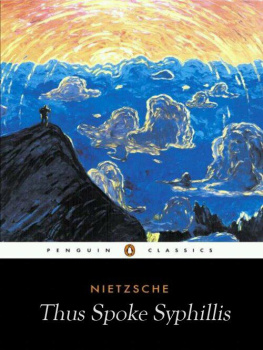
Great Clarendon Street, Oxford OX2 6DP
Oxford University Press is a department of the University of Oxford.
It furthers the Universitys objective of excellence in research, scholarship,
and education by publishing worldwide in
Oxford New York
Auckland Cape Town Dar es Salaam Hong Kong Karachi
Kuala Lumpur Madrid Melbourne Mexico City Nairobi
New Delhi Shanghai Taipei Toronto
With offices in
Argentina Austria Brazil Chile Czech Republic France Greece
Guatemala Hungary Italy Japan Poland Portugal Singapore
South Korea Switzerland Thailand Turkey Ukraine Vietnam
Oxford is a registered trade mark of Oxford University Press
in the UK and in certain other countries
Published in the United States
by Oxford University Press Inc., New York
Graham Parkes 2005
The moral rights of the author have been asserted
Database right Oxford University Press (maker)
First published as an Oxford Worlds Classics paperback 2005
All rights reserved. No part of this publication may be reproduced, stored in a retrieval system, or transmitted, in any form or by any means, without the prior permission in writing of Oxford University Press, or as expressly permitted by law, or under terms agreed with the appropriate reprographics rights organization. Enquiries concerning reproduction outside the scope of the above should be sent to the Rights Department, Oxford University Press, at the address above
You must not circulate this book in any other binding or cover
and you must impose this same condition on any acquirer
British Library Cataloguing in Publication Data
Data available
Library of Congress Cataloging in Publication Data
Data available
Typeset in Ehrhardt
by RefineCatch Limited, Bungay, Suffolk
Printed in Great Britain by
Clays Ltd., St. Ives plc., Suffolk
ISBN 0192805835 9780192805836
OXFORD WORLDS CLASSICS
For over 100 years Oxford Worlds Classics have brought readers closer to the worlds great literature. Now with over 700 titlesfrom the 4,000-year-old myths of Mesopotamia to the twentieth centurys greatest novelsthe series makes available lesser-known as well as celebrated writing.
The pocket-sized hardbacks of the early years contained introductions by Virginia Woolf, T. S. Eliot, Graham Greene, and other literary figures which enriched the experience of reading. Today the series is recognized for its fine scholarship and reliability in texts that span world literature, drama and poetry, religion, philosophy, and politics. Each edition includes perceptive commentary and essential background information to meet the changing needs of readers.
Refer to the to navigate through the material in this Oxford Worlds Classics ebook. Use the asterisks (*) throughout the text to access the hyperlinked Explanatory Notes.
OXFORD WORLDS CLASSICS

FRIEDRICH NIETZSCHE
Thus Spoke Zarathustra
A Book for Everyone and Nobody

Translated with an Introduction and Notes by
GRAHAM PARKES

OXFORD WORLDS CLASSICS
THUS SPOKE ZARATHUSTRA
FRIEDRICH NIETZSCHE (18441900) was born in Rcken, Saxony, and educated at the universities of Bonn and Leipzig. At the age of only 24 he was appointed Professor of Classical Philology at the University of Basle, but prolonged bouts of ill health forced him to resign from his post in 1879. Over the next decade he shuttled between the Swiss Alps and the Mediterranean coast, devoting himself entirely to thinking and writing. His early books and pamphlets (The Birth of Tragedy, Untimely Meditations) were heavily influenced by Wagner and Schopenhauer, but from Human, All Too Human (1878) on, his thought began to develop more independently, and he published a series of ground-breaking philosophical works (The Gay Science, Thus Spoke Zarathustra, Beyond Good and Evil, On the Genealogy of Morals) which culminated in a frenzy of production in the closing months of 1888. In January 1889 Nietzsche suffered a mental breakdown from which he was never to recover, and he died in Weimar eleven years later.
GRAHAM PARKES is Professor of Philosophy at the University of Hawaii. He is the editor of Nietzsche and Asian Thought (1991), author of Composing the Soul: Reaches of Nietzsches Psychology (1994), and co-translator of Georges Liberts Nietzsche and Music (2004).
CONTENTS
For Helen
ABBREVIATIONS
The following abbreviations are used in the references to Nietzsches works (references to individual books are to part and/or paragraph numbers):
B | Friedrich Nietzsche: Smtliche Briefe, Kritische Studienausgabe, ed. Giorgio Colli and Mazzino Montinari, 8 vols. (Munich, 1986); references are to dates |
BGE | Beyond Good and Evil |
EH | Ecce Homo |
HA | Human, All Too Human |
JS | The Joyful Science |
SE | Schopenhauer as Educator |
W | Friedrich Nietzsche: Smtliche Werke, Kritische Studienausgabe, ed. Giorgio Colli and Mazzino Montinari, 15 vols. (Munich, 1980); references are to volume and section numbers |
WS | The Wanderer and His Shadow (in HA) |
INTRODUCTION
Thus Spoke ZarathustraA Book for Everyone and Nobody: the subtitle, at first puzzling, is also telling. The work is for nobody insofar as its an intensely personal piece of philosophizing: There is in this book an incredible amount of personal experience and suffering that is comprehensible only to memany pages strike me as almost blood-thirsty (B Aug. 1883). So why did Nietzsche bother to make public his personal experience? And to what extent is the result philosophy, whose practitioners have traditionally aimed at impersonality, generality, or even universality? The answer lies in Nietzsches unusual understanding of philosophy and the philosopher, as exemplified in his most unusual book: Thus Spoke Zarathustra.
Nietzsche knew that what is personal may after all touch others, though the process remains obscure. Strange! he wrote in 1880, I am dominated at every moment by the thought that my history is not only a personal one, that I am doing something for many people when I live like this and work on and write about myself this way (W9: 7 [105]). A few years later he says this about the way philosophers can transform life-experience into thought: We must constantly give birth to our thoughts out of our pain, and nurture them with everything we have in us of blood, heart, fire, pleasure, passion, agony, conscience, fate, and catastrophe. Life to usthat means constantly transforming everything we are into light and flame, as well everything that happens to us (
Next page


